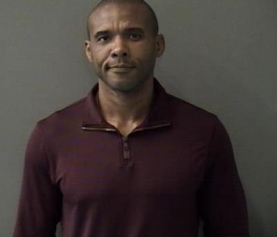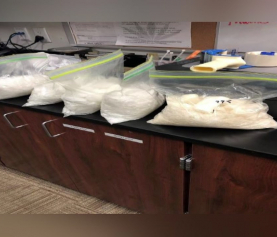CPS appeals to avoid paying $127K sanction after wrongful removal
Child Protective Services has filed an appeal to avoid paying a Harris County judge’s $127,000 sanction after finding that the agency wrongfully removed a Tomball couple’s children earlier this year and then allegedly lied in court.
Though CPS is fighting the payments — the first of which would have been due Tuesday— the state has agreed to move ahead with court-ordered employee training, which Judge Mike Schneider said must be completed by the end of the month.
“No matter the outcome, we want to do what it takes to improve the system, ensuring child safety while also maintaining respect for families,” said CPS spokeswoman Tiffani Butler. Since the November sanctions — which may be the largest-ever leveled against the agency — CPS has maintained its handling of the Bright family’s case was “appropriate,” even though Schneider found that the agency “abused the legal process” and purposely filed “misstatements of fact.”
The appeal, filed last week, is just the latest twist in the drawn-out case where, at one point, a caseworker shocked the courtroom by pleading the Fifth repeatedly during a removal hearing and the judge ordered CPS to stay away from two children.
For Melissa and Dillon Bright, the appeal just prolongs a legal battle that started in July, when the couple’s 5-month-old son Mason fell out of a lawn chair in front of the family home.
An MRI revealed two fractures and bleeding in the baby’s brain — and the hospital’s child abuse team decided that could mean the injuries were signs of abuse. A CPS supervisor stepped in and decided the kids needed to go live with Dillon’s mother in Baytown, more than an hour away.
But caring for a baby with serious medical needs became too much for Dillon’s mother. So, armed with evidence that their baby’s excessive bleeding was possibly the result of a blood disorder and not abuse, the Brights tried to get their children placed with family closer to home.
Despite admitting they didn’t have grounds to take the kids, according to court records, the agency never approved the switch. So on Aug. 28, Dillon told caseworker Lavar Jones that they were bringing the baby home.
No one from CPS contacted the family until three weeks later, when Jones texted Melissa on Sept. 18 to ask how the baby was. She replied, sending along happy photos and a health update.
The next day, the state — without notifying the Brights — got emergency custody of the children after failing to tell a judge the kids had been safe at home for 22 days. That evening, Jones showed up at the Brights’ home and took the children to foster care.
Then, in early October, the court held a three-day hearing to figure out whether the state had enough cause to keep the kids. When questioned about conflicting earlier claims he’d made, Jones pleaded the Fifth.
“It can be inferred from the context of Mr. Jones’s other testimony,” Schneider later wrote, “that he invoked his Fifth Amendment at the adversary hearing to avoid admitting to prior perjury.”
The Tomball family got back their kids and, last month, the parties reconvened for a five-day sanctions hearing. Part of the sanctions included regional training for workers, though the judge later agreed to narrow it to Harris County-based workers.
After rejecting the agency’s first training proposal because it didn’t include training on family law or perjury, Schneider accepted a second proposal last week. But that same day, the agency filed to appeal the rest of the sanctions, including the $127,000 that would have helped covered the Brights’ legal fees.
Still, family attorney Stephanie Proffitt — who is handling the case along with Dennis Slate — said that the unsuccessful appeal could ultimately net a better outcome for the Brights and other families like them.
“If it becomes case law across the state and people can refer to the Bright case over and over again when they’re telling CPS, ‘You can’t take my kids when it’s not justified,’” she said, “then the case has done what it needed to do.”




